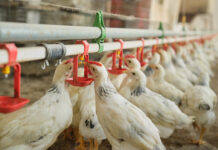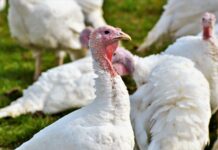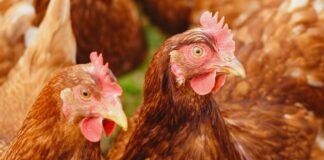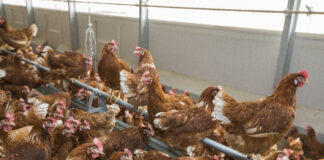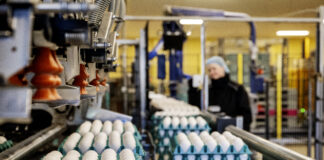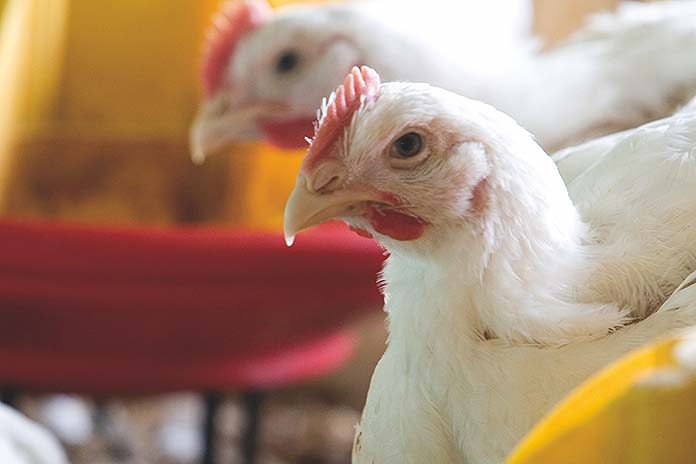
An experiment was conducted to evaluate the effects of supplementing an inherently thermo stable protease in broilers fed diets based on single raw materials, soya bean meal and rice bran to evaluate the reduction of undigested protein and amino acids of each raw material.
A total of 210 Ross 308 male broilers of 21 days old were assigned to 5 treatments with 6 pens per treatment and 7 broilers per pen. Data were analyzed as factorial in randomized complete block design using the General Linear Models procedure of SAS® and the significant differences between treatment groups were detected by Duncan’s multiple range test. The differences among the treatment were considered significant at P-value≤ 0.05. Test diets included: T1 (-ve control): a N free diet; T2: a 96.2% soya bean meal diet; T3: T2 with protease at 0.05% of the diet; T4: a 96.2% rice bran diet; T5: T4 with protease at 0.05% of the diet. Before 21 days of age there was a 5 day adjustment period to the diets. At 21 days, excreta collection was done during a 96-hour period and dried for metabolic energy calculations. After finishing the body weight and total feed intake of broilers in each cage was recorded.
The broilers were sacrificed for collecting ileal content and freeze dried for digestibility analysis. The ileal protein digestibility was calculated on a dry matter basis. T2 and T4 showed lower AME and AMEn than the treatments supplemented with protease. There was an increase of the amino acid digestibility in the diets supplemented with protease (T3 and T4). Digestibility improved significantly (P < 0.05) in several essential amino acids (Met, Cys, Trp, Arg, Val) and non-essentials (Phe, His, Asp, Gly). The improvement of digestibility in the rice bran was higher than in soya bean meal. The addition of an exogenous protease improved the digestibility of amino acids resulting in a reduction of the undigested protein available as nutrients for the growth of pathogenic bacteria.
The use of reduced crude protein diets is becoming popular to increase broilers health but must come at the expense of performance. Judicious use of exogenous protease to maximize digestion of the protein fraction in these diets has multiple benefits. Accelerated dynamics of amino acid digestion in the gut leads to reduced protein escape to the hind gut. This in turn reduces intestinal fermentation and colonization by pathogenic bacteria. Reduction in these pathogenic bacteria allows for increased expression of growth in intestinal tissue and more efficient nutrient absorption.
References
Ravindran V, Cabahug S, Ravindran G & Bryden WL (1999) Poultry Science 78: 699-706. Adedokun SA, Adeola O, Parsons CM, Lilburn MS & Applegate TJ (2008) Poultry Science 87: 2535-2548.
Source: Australian Poultry Science Proceedings


